Authors: Meghan L. O'Sullivan | Richard N. Haass
Honey & Vinegar: Incentives, Sanctions & Foreign Policy
2000
You may also be interested in
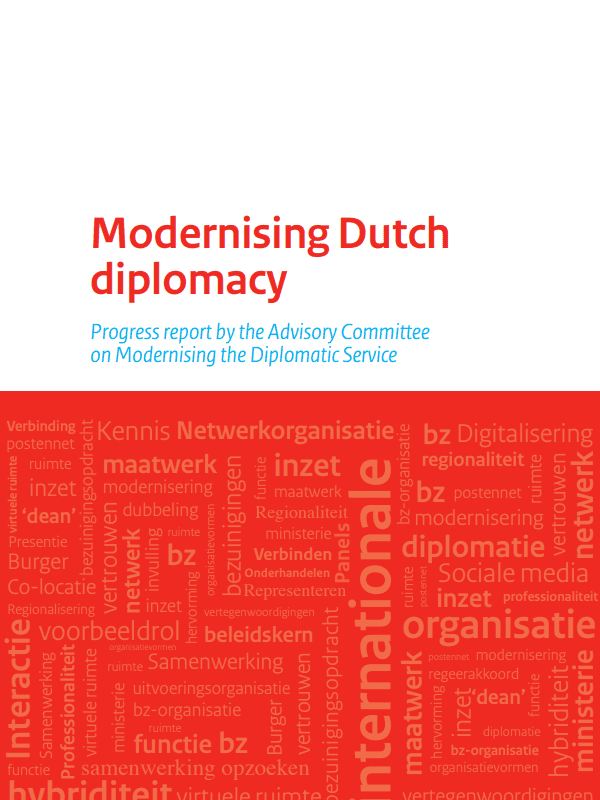
Modernising Dutch Diplomacy
The Dutch government is making investments in the modernization of its diplomatic services to enhance its efficiency, effectiveness, and digital capabilities. This upgrade aims to position the Netherlands as a leader in global diplomacy by adapting to the changing international landscape and embracing innovation.
Understanding Iran’s Media Diplomacy
Iran's media diplomacy aims to present the country positively on the global stage. Through state-controlled outlets like Press TV and Al-Alam, Iran shares its perspective on international events, often offering a counter-narrative to Western media. This effort is part of a broader strategy to shape global perceptions of Iran and challenge negative stereotypes. By utilizing media as a tool for diplomacy, Iran seeks to influence public opinion and build alliances with countries sharing similar views.

The Imperial Component in Iran’s Foreign Policy: Towards Arab Mashreq and Arab Gulf States
One of the most important developments the Middle East has witnessed in the 20th centaury was the success of the Iranian revolution of Islamist ideology, with ambitions to control.
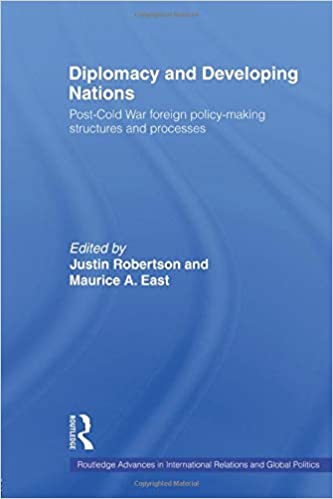
Diplomacy and Developing Nations: Post-Cold War foreign policy-making structures and processes
The text discusses how post-Cold War foreign policy-making structures and processes impact diplomacy with developing nations.

Britain and Southern Africa
The text discusses Britain’s historical involvement in Southern Africa, highlighting colonisation, the impact of British rule, and the legacy of this relationship.

Palestinian statehood diplomacy: The Palestinian UN bids of 2011-2012
The Palestinian Authority (PA) launched an intense diplomatic campaign to garner a supporting vote in the United Nations General Assembly (UNGA), which was finally realized in 2012 by an upgrade to a 'non member observer state', granting Palestine a set of new privileges. It represents a victory for Palestinian diplomacy and presents a model of statehood diplomacy that received support as much as criticism. It stirred discussions about statehood and state recognition, and exposed the limited success of international interventions in post-conflict state building efforts.
Will WikiLeaks Hobble U.S. Diplomacy?
The message relates to the potential impact of WikiLeaks on U.S. diplomacy.

Chinese Ambassadors: The rise of diplomatic professionalism since 1945
Xiaohong worked on Western European affairs in the Ministry of Foreign Affairs in Beijing from 1977 until 1989. At some point after this she entered the School of Advanced International Studies at Johns Hopkins University in the United States, and in 1997 was awarded a Ph.D. This book is her doctoral thesis, and - on the whole - a very good one it is. Chinese Ambassadors is based on many interviews with former diplomats and a variety of Chinese primary sources (including memoirs), and is clear, well organized, and - in its main thrust - tightly argued. As a result, it offers a rare insight int...

Impact of Russia’s Foreign Energy Policy on Small European States’ Security. Case Study: The Baltic States
Russia is the main energy supplier for Europe and Europe is the biggest market for Russian energy sources. This interdependency is the main cause for complicated energy relations between the EU, that is struggling to merge divergent interests of its 27 unequal members on one side, and Russia, that has gained new confidence in its energy power, on the other.
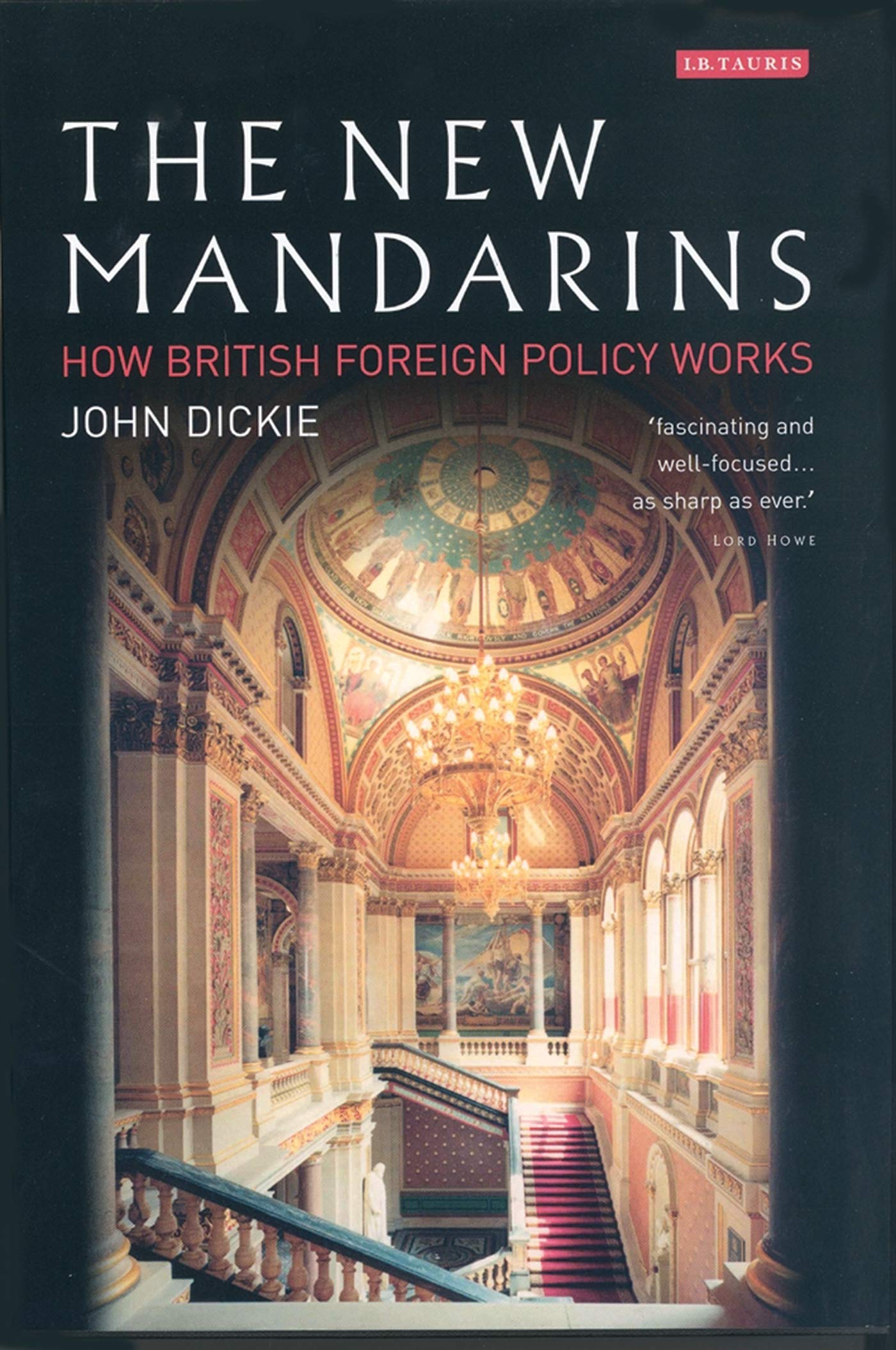
The New Mandarins: How British foreign policy works
The message delves into how British foreign policy operates, examining the role of the "new mandarins" in shaping decisions and strategies.
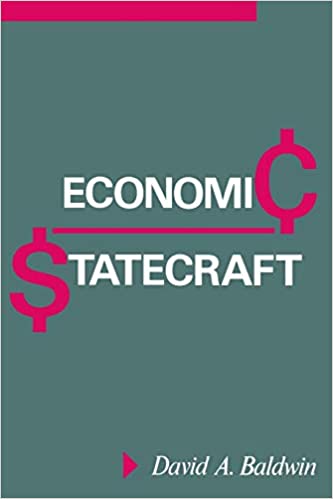
Economic Statecraft
The text is about economic statecraft.

Health, security and foreign policy
Over the past decade, health has become an increasingly important international issue and one which has engaged the attention of the foreign and security policy community. This article examines the emerging relationship between foreign and security policy, and global public health. It argues that the agenda has been dominated by two issues – the spread of selected infectious diseases (including HIV/AIDS) and bio-terror. It argues that this is a narrow framing of the agenda which could be broadened to include a wider range of issues. We offer two examples: health and internal instability,...
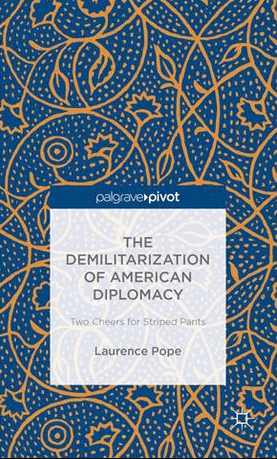
The Demilitarization of American Diplomacy: Two cheers for striped pants
The trenchant contribution to this subject of the outstanding American scholar-diplomat Laurence Pope is published in Palgrave’s ‘Pivot’ series of short books designed to be brought out quickly.
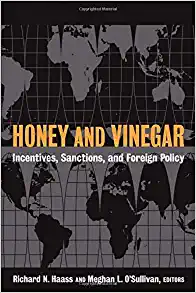
Honey & Vinegar: Incentives, Sanctions & Foreign Policy
Buttressed by input from scholars, diplomats, and observers with an intimate knowledge of U.S. foreign policy, Honey and Vinegar examines "engagement"—strategies that primarily involve the use of positive incentives.
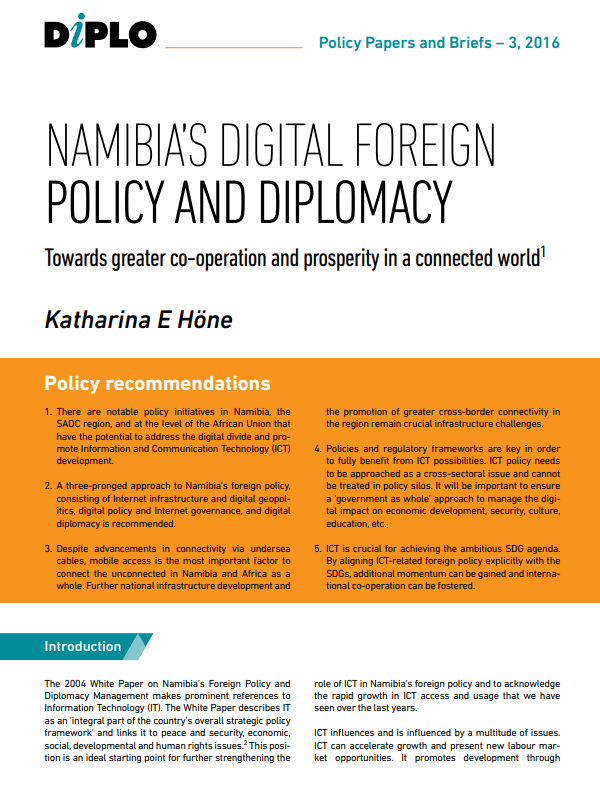
Namibia’s Digital Foreign Policy and Diplomacy (Briefing Paper #3)
This briefing paper emerged from Diplo's participation in Namibia's Foreign Policy Review Conference (July 2016). In this paper, Dr Katharina E. Höne suggests a three-pronged approach to Namibia's digital foreign policy and diplomacy, and looks at the discourse on information and communications technology (ICT) and development.
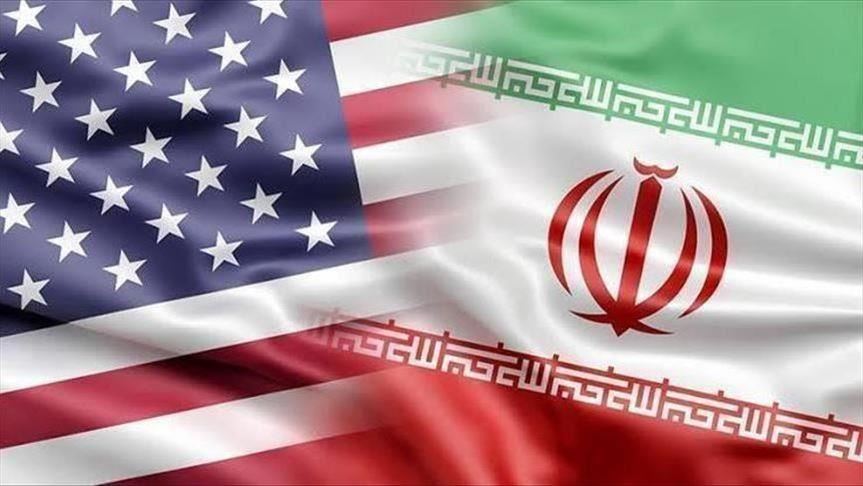
Public Diplomacy in the Middle East: A Comparative Analysis of the U.S. and Iran
The message provides a comparative analysis of public diplomacy strategies employed by the United States and Iran in the Middle East.
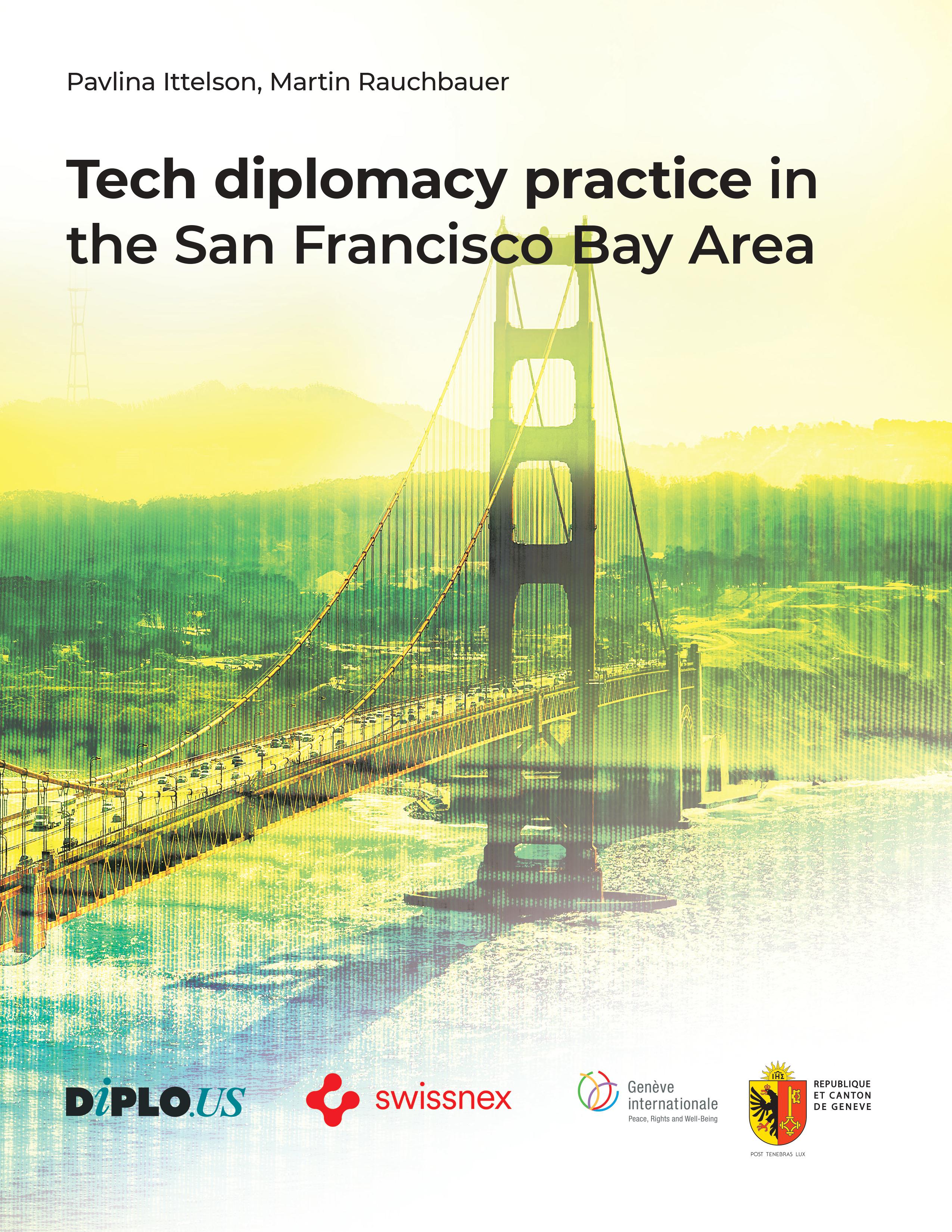
Tech diplomacy practice in the San Francisco Bay Area
A fresh look five years after the first mapping in 2018, this report examines how countries engage in tech diplomacy in the San Francisco Bay Area. The report maps a selection of diplomatic representations to illustrate the variety of approaches engaged and identifies both the benefits and challenges for countries and tech companies in pursuing the practice of tech diplomacy.
Will Shashi Tharoor’s Recommendations Reform the MEA for the Better?
The text is about Shashi Tharoor's proposed reforms for India's Ministry of External Affairs (MEA) and the impact it could have.
German Strategy for International Digital Policy
The German government's Strategy for International Digital Policy outlines their commitment to safeguarding democracy and freedom online, promoting human rights, advocating for a global, open, free, and secure internet, enhancing technology partnerships, supporting cross-border data flows, shaping international standards, ensuring sustainable and resilient digital societies, and utilizing digitalization to address global challenges. This strategy aligns with various policy goals and emphasizes the importance of cooperation at global, regional, and national levels to advance digital governance,...
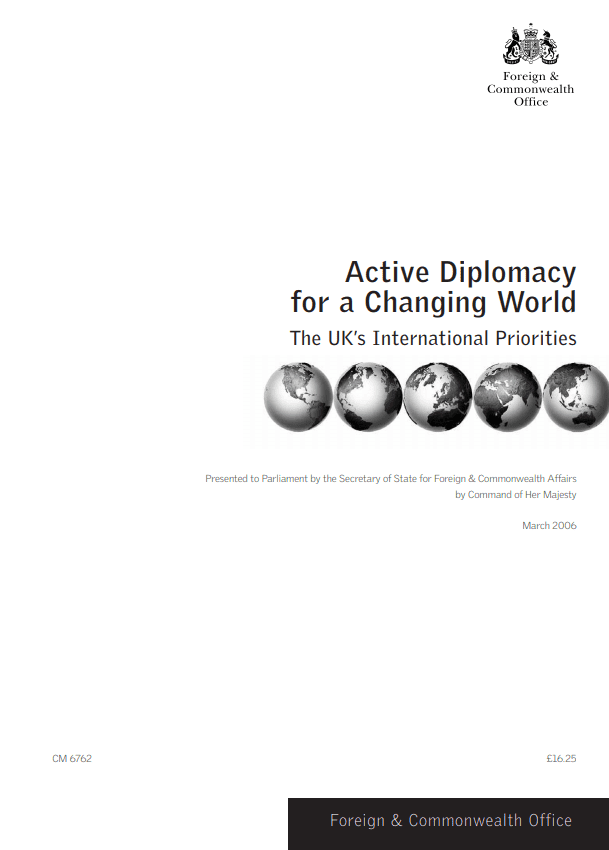
Active Diplomacy for a Changing World: The UK’s International Priorities
The UK's international priorities focus on active diplomacy in a changing world, emphasizing the importance of global engagement and cooperation to address challenges effectively.

Exploring the Relevance of Engagement and Containment Approaches in the European Union’s Management of Relations with Russia
Since 2006, Russia has grown more assertive and even hawkish in its approach to the European Union (EU), even seen as attempting to divide the large EU membership so as to consolidate its influence in Europe.

Digital Diplomacy as a foreign policy statecraft to achieving regional cooperation and integration in the Polynesian Leaders Group
Established in 2011, the Polynesian Leaders Groups serves to fulfill a vision of cooperation, strengthening integration on issues pertinent to the region and to the future of the PLG. Its nine – American Samoa, French Polynesia, Niue, Cook Islands, Tokelau, Tuvalu, Tonga and Wallis Futuna, is argued to have strength in numbers, resources and diversity, and a positive addition to the growing regional diplomacies in the South Pacific.
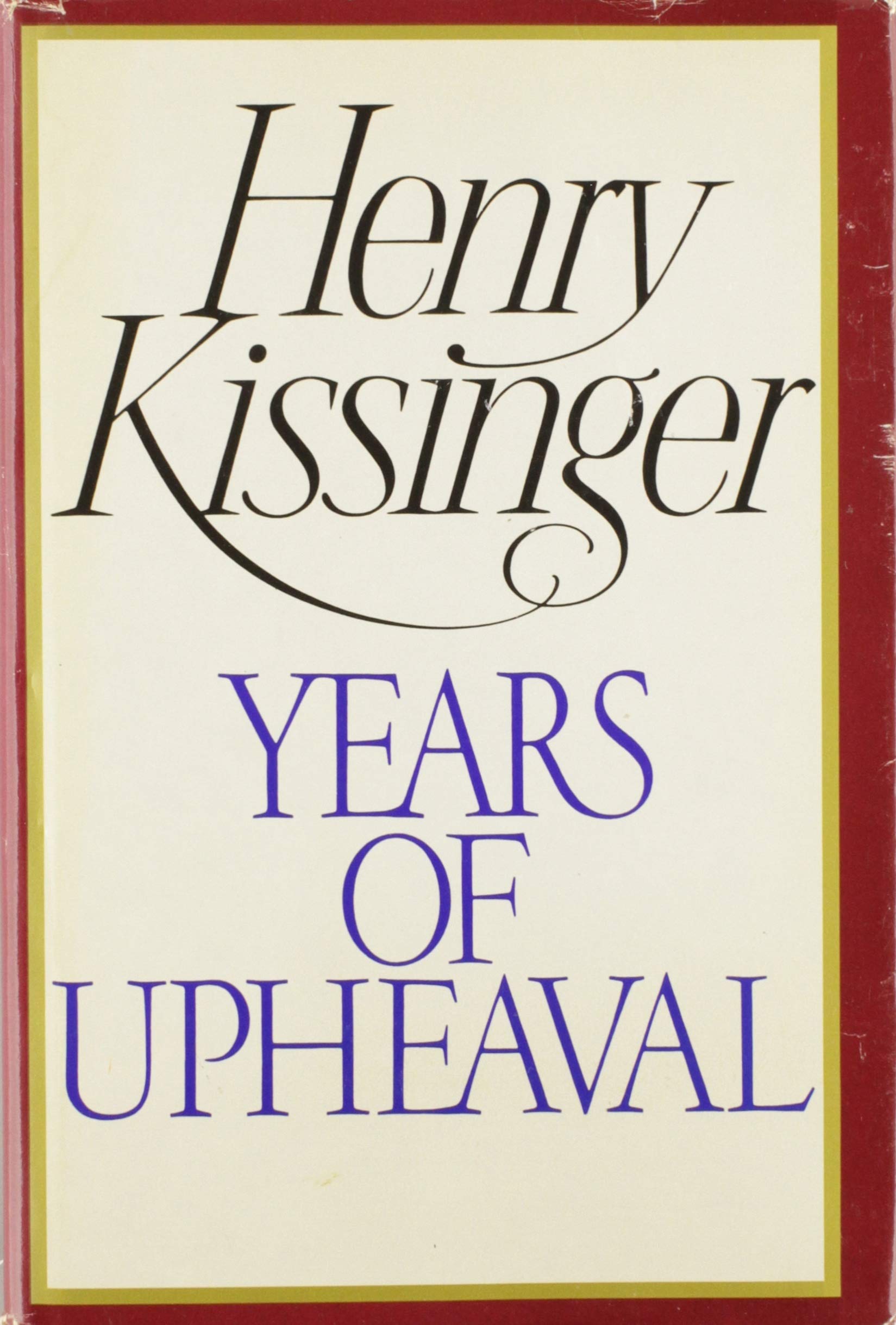
Years of Upheaval
The text discusses the challenges and changes experienced over several years.
A Digital DFAT: Joining the 21st Century
The Department of Foreign Affairs and Trade (DFAT) needs to keep pace with technological advancements that could increase efficiency, improve internal and external communication, and facilitate information exchange and gathering. Without e-diplomacy DFAT will be cut off from important audiences and find it increasingly hard to communicate its messages and coordinate Australian foreign policy across government.
The Death of Ambassador Chris Stevens, the Need for ‘Expeditionary Diplomacy,’ and the Real Lessons for U.S. Diplomacy
The text discusses the death of Ambassador Chris Stevens, emphasizes the necessity of "Expeditionary Diplomacy," and highlights key lessons for U.S. diplomacy.

The Permanent Under-Secretary of State: A brief history of the office and its holders
As the title of this booklet indicates, it is only a brief history of this increasingly influential office in the British Foreign & Commonwealth Office. Nevertheless, as one would expect from its provenance, it is completely authoritative, fluently written, draws on previously under-exploited archives, and includes many nineteenth century photographs never previously published.
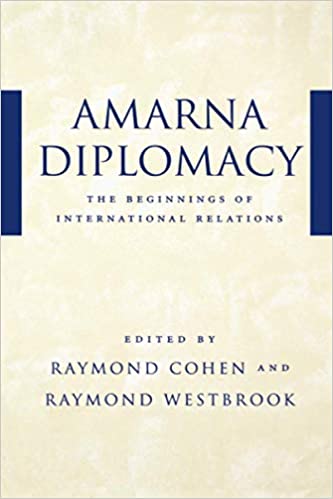
Amarna Diplomacy: The Beginnings of International Relations
The text discusses the emergence of diplomatic relationships during the Amarna period, highlighting how this era marked the start of international relations.
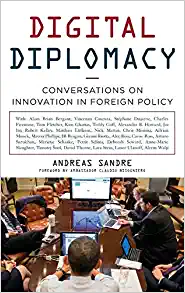
Digital diplomacy: Conversations on Innovations in Foreign Policy
The text discusses the role of digital diplomacy in shaping innovative foreign policy strategies.
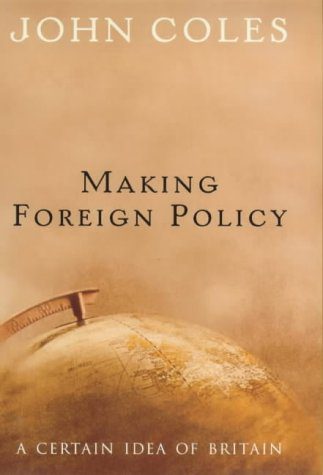
Making Foreign Policy: A Certain Idea of Britain
In the course of his distinguished diplomatic career Sir John Coles worked in the Cabinet Office and was Private Secretary to the Prime Minister, Margaret Thatcher. At the time of his retirement in 1997 he was concluding over three years as Permanent Under-Secretary at the Foreign Office. His views on the problems now faced by British foreign policy-making and what might be done to correct them, which it is the main object of this book to present, thus demand close attention.
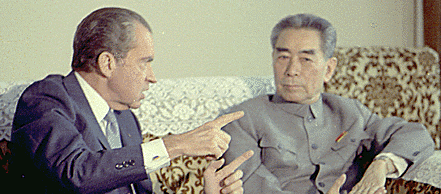
Nixon’s Trip to China
Nixon's historic trip to China in 1972 marked a significant shift in international relations. This visit helped to normalize diplomatic ties between the United States and China, as well as pave the way for future cooperation and collaboration between the two countries. It was a groundbreaking moment that showcased the power of political diplomacy in fostering positive relationships between nations.
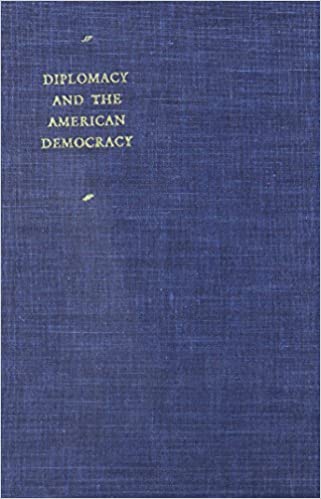
Diplomacy and the American Democracy
The text discusses the connection between diplomacy and American democracy. Diplomacy is essential for promoting American values, interests, and security worldwide. It highlights the importance of diplomacy in advancing democracy, human rights, and peace. Diplomatic efforts help address global challenges and conflicts, contributing to a more stable and prosperous world. Diplomacy is a key tool in shaping international relations and ensuring America's leadership on the global stage. It emphasizes the need for strategic and effective diplomacy in advancing American interests and promoting democr...

Room For Diplomacy: Britain’s Diplomatic Buildings Overseas 1800-2000
Mark Bertram joined the Ministry of Public Buildings and Works after reading architecture at Cambridge and remained in the civil service as architect, project manager, administrator, estate manager and – in his own words – ‘quasi diplomat’ for the next thirty years. He was the ministry’s regional architect in Hong Kong in the 1970s, moved to the Foreign and Commonwealth Office when it secured control of its own buildings abroad (the ‘diplomatic estate’) in 1983, and was soon head of the estate department. On surrendering that role in 1997, he became a professional adviser to the ...

Message on Switzerland’s International Cooperation in 2013-2016
The text discusses Switzerland's international cooperation activities from 2013 to 2016.

Current developments in South African diplomacy
As the new South Africa adapts to an ever-changing regional, continental and global environment, this paper reviews current developments against the background of the historic situation and of the evolution of diplomacy world-wide.
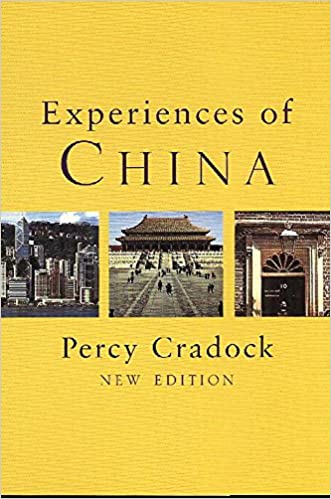
Experiences of China
The writer shares their experiences in China, including cultural immersion, language challenges, local cuisine exploration, and building friendships. They express admiration for the country's beauty and history, emphasizing the transformative impact of living abroad.
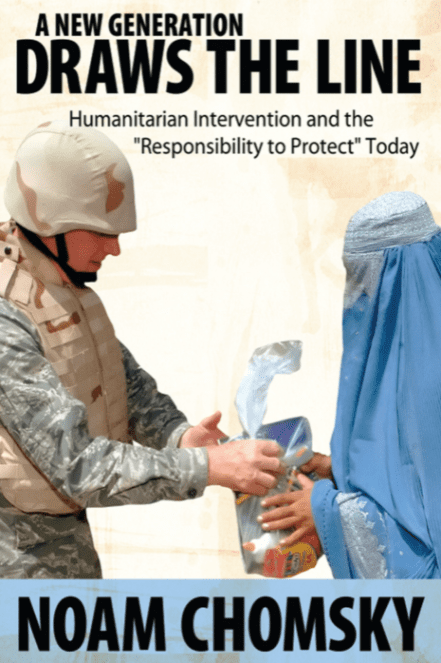
A New Generation Draws the Line: Kosovo, East Timor and the Standards of the West
Note: The author of this review compares Noam Chomsky's A New Generation Draws the Line: Kosovo, East Timor and the Standards of the West and David Fromkin's Kosovo Crossing: American Ideals meet Reality on the Balkan Battlefields.
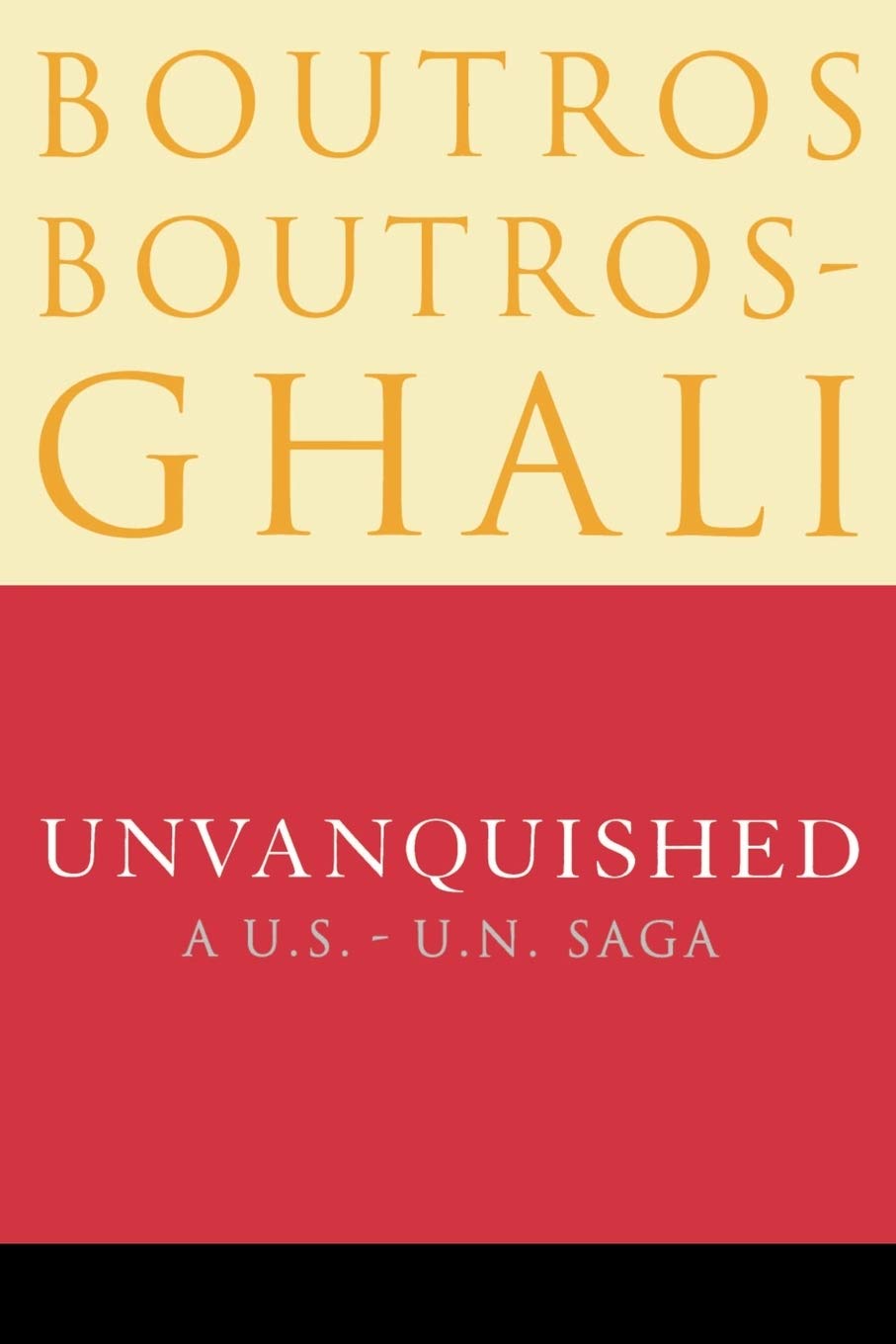
Unvanquished: A U.S.-U.N. Saga
In November 1996, the U.S. wielded its veto power in the U.N. Security Council to prevent Boutros Boutros-Ghali from securing a second term as Secretary-General, despite overwhelming support. The U.S. had attempted various tactics, including disinformation and pressure on other council members, to oust him. Boutros-Ghali's memoir sheds light on the U.S.'s dismissal of diplomacy in this instance, emphasizing the power dynamics at play. The event underscored the potential weakening of the U.N. diplomatic system.

The geopolitics of access to oil resources: The case of Uganda
Ten years ago, Uganda joined other sub-Saharan African Countries with new discoveries of oil; and just as the case always is, this news comes with high prospects for development and economic transformation. These ambitious projections are always based on the success stories of oil money in other countries without prejudice to the fear of the infamous oil curse that results from poor exploitation of oil revenues. With these aspirations at hand, Uganda has clearly stated in its national polices and development plans the fact that the country's development in the next 30 years shall be largely de...
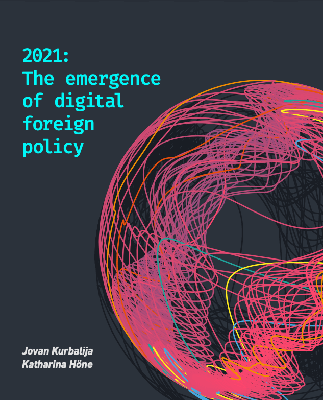
2021: The emergence of digital foreign policy
While digital tools, in particular social media, have been gradually introduced to the practice of diplomacy, many open questions remain regarding the impact of digitisation on foreign policy and the environment in which diplomacy is practised. This is where digital foreign policy becomes important. The report is available for download. The summary and recordings of the online conference 2021: The emergence of digital foreign policy are also available.
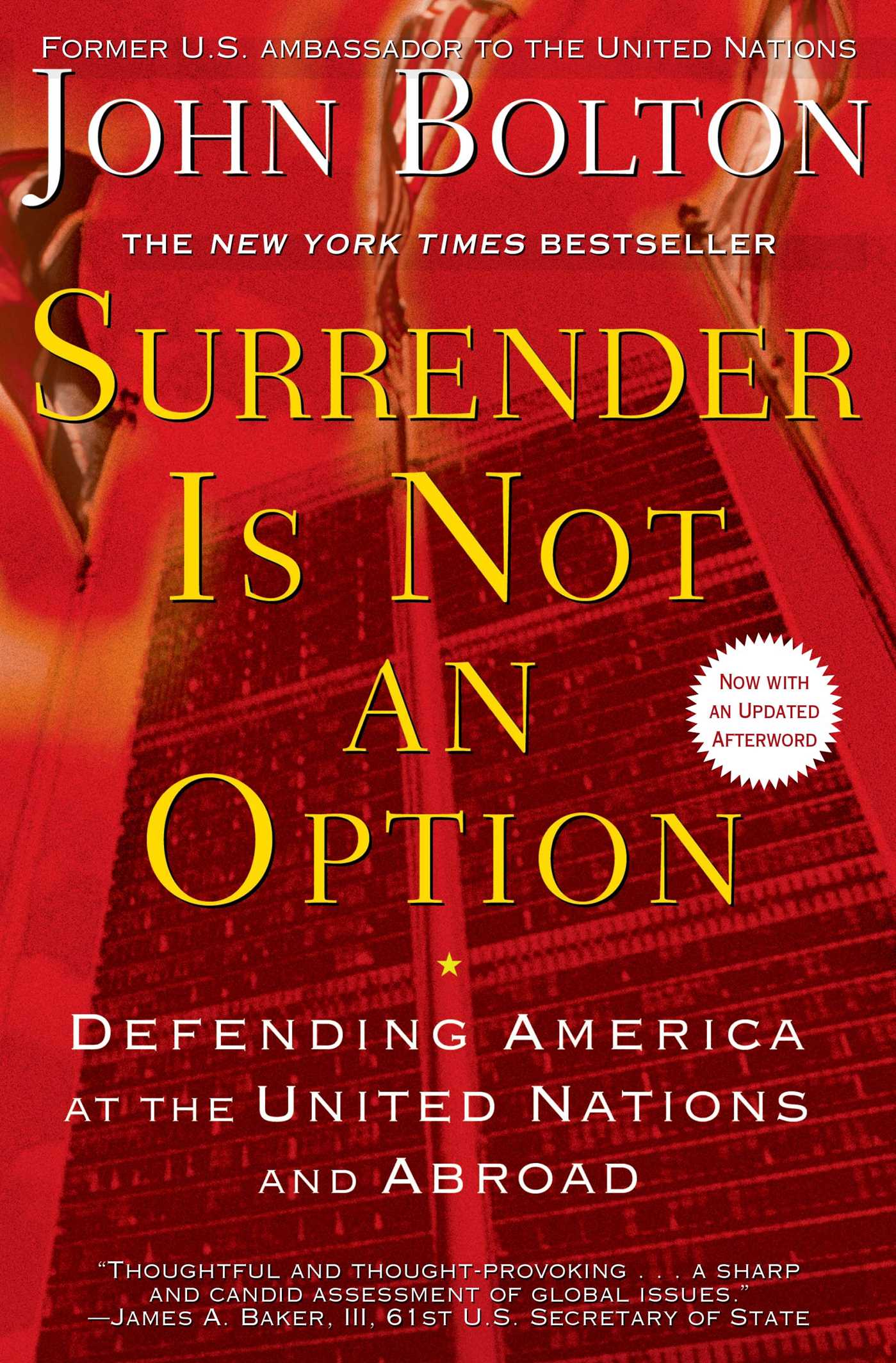
Surrender is Not an Option: Defending America at the United Nations and Abroad
In the book "Surrender is Not an Option: Defending America at the United Nations and Abroad," the author emphasizes the importance of standing firm in defense of America's interests, explaining that surrender should never be considered as a viable option in international relations. The book likely offers insights into strategies for navigating diplomatic challenges while maintaining a strong stance on key issues.

A clash of grand strategies between Russia, United States of America and Turkey for greater power and influence in the Middle East
The thesis explores the changing dynamics in the Middle East where the region is witnessing a metamorphosis in its power structure as major regional powers actively pursue their grand strategies to unseat U.S. hegemony. The analysis focuses in particular on the foreign policies of the revisionist powers of Russia and Turkey collaborating in all spheres of statecraft against the resoluteness of the U.S. to maintain the status quo. It recognises that the Syrian civil war has disrupted the equilibrium of the prevailing power structure which, by extension, has provided the enabling environment for...
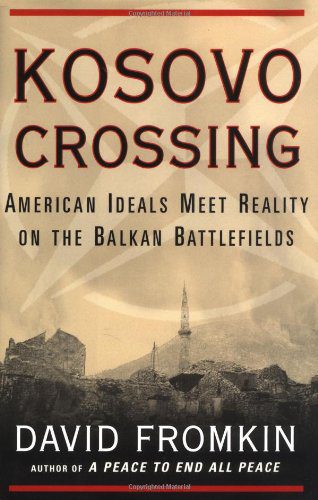
Kosovo Crossing: American Ideals meet Reality on the Balkan Battlefields
The author of this review compares Noam Chomsky's A New Generation Draws the Line: Kosovo, East Timor and the Standards of the West and David Fromkin's Kosovo Crossing: American Ideals meet Reality on the Balkan Battlefields.
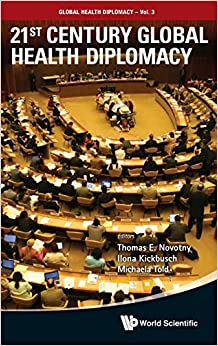
21st century health diplomacy: A new relationship between foreign policy and health
The 21st century sees a shift towards the integration of foreign policy and health, emphasizing the importance of health diplomacy in global affairs.

South Africa, the Colonial Powers and ‘African Defence’: The rise and fall of the white entente, 1948-60
This book describes the fate of South Africa's drive, which began in 1949, to associate itself with Britain, France, Portugal and Belgium in an African Defence Pact. It describes how South Africa had to settle for an entente rather than an alliance, and how even this had been greatly emasculated by 1960. In light of this case, the book considers the argument that ententes have the advantages of alliances without their disadvantages, and concludes that this is exaggerated.
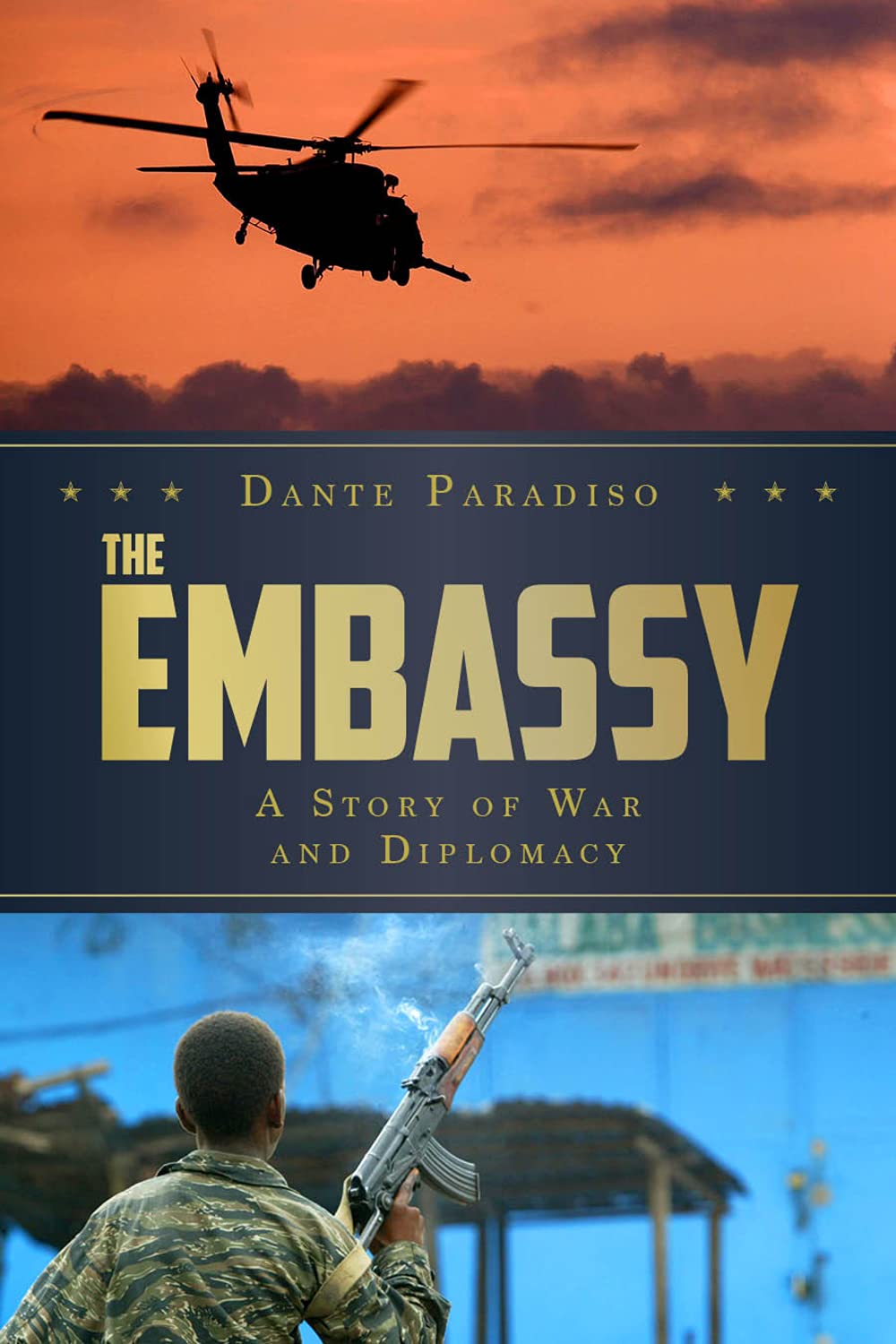
The Embassy: A story of war and diplomacy
This book tells the story of the vital role played by the US Embassy in Monrovia in helping to mediate an end to the brutal, 14-year civil war in Liberia in 2003.

Global Health and the Foreign Policy Agenda
Global health initiatives are a vital component of foreign policy. Efforts to address healthcare challenges worldwide can improve international relations and promote stability. Investments in global health can yield benefits for both public health and diplomatic relations, demonstrating a commitment to global cooperation and solidarity. As the world becomes increasingly interconnected, prioritizing global health in foreign policy agendas is crucial for fostering a safer and more prosperous global community.

Secret, lies and diplomats
The text discusses confidential conversations between diplomats including secrets and falsehoods.
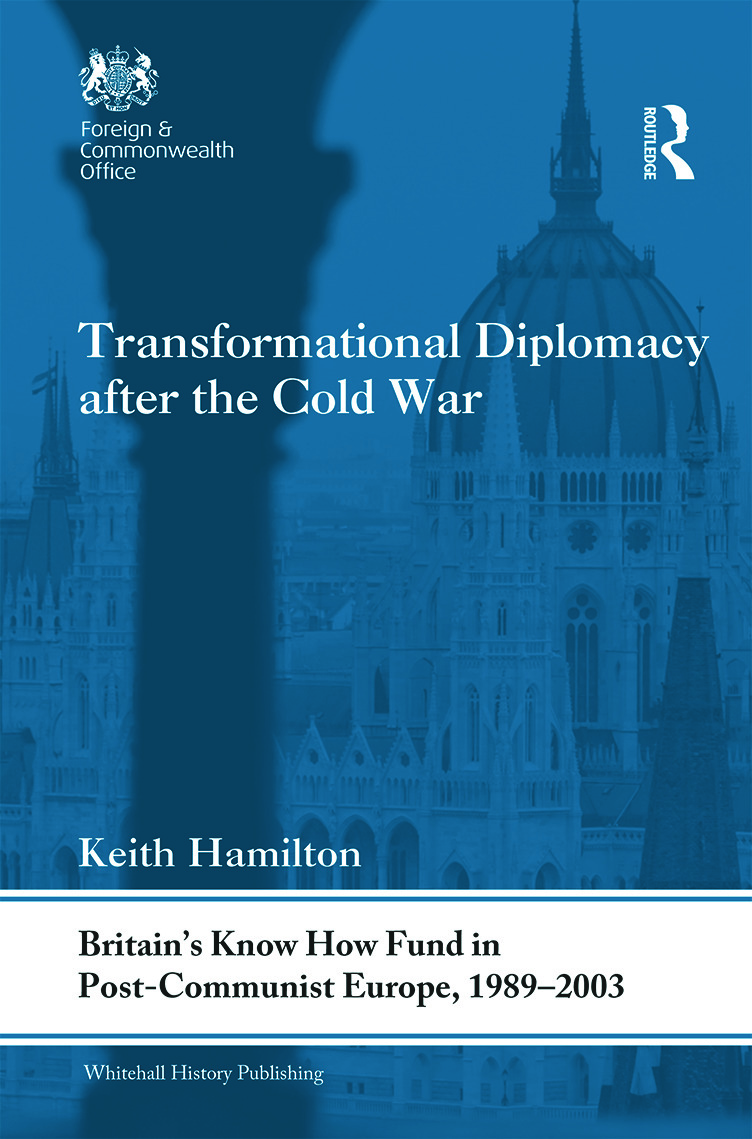
Transformational Diplomacy after the Cold War: Britain’s Know How Fund in Post-Communist Europe, 1989-2003
This is the long awaited history of the Know How Fund (KHF) produced by the recently retired Foreign and Commonwealth Office historian Keith Hamilton. Like other FCO ‘internal histories’, it was initially written ‘to provide background information for members of the FCO, to point out possible lessons for the future and evaluate how well objectives were met.’
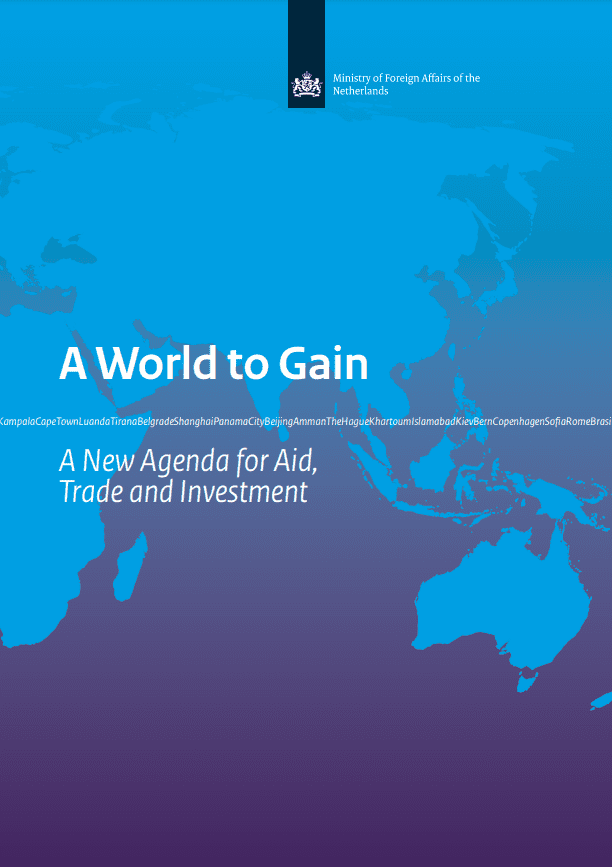
A World to Gain: A New Agenda for Aid, Trade and Investment
A World to Gain: A New Agenda for Aid, Trade and Investment" outlines a comprehensive approach to global development through aid, trade, and investment. It suggests strategies to address economic disparities and foster sustainable growth worldwide. The book advocates for collaboration between countries and institutions to tackle challenges and unlock opportunities for progress on a global scale.

Singapore’s Diplomacy: Vulnerability into Strength
Singapore is a practitioner of focused, innovative diplomacy, constantly in search of the political space for itself that would overcome its sense of vulnerability resulting from its geopolitical location.
Diplomacy and domestic politics: The logic of two-level games
The text discusses the concept of two-level games, which examines how international negotiations are influenced by both domestic and international factors. Diplomats must navigate these complexities to reach agreements that satisfy both international partners and domestic constituencies, balancing the demands of two levels of negotiation.

Oslo Ministerial Declaration – global health: a pressing foreign policy issue of our time
The Oslo Ministerial Declaration emphasizes the critical nature of global health as a pressing foreign policy concern.
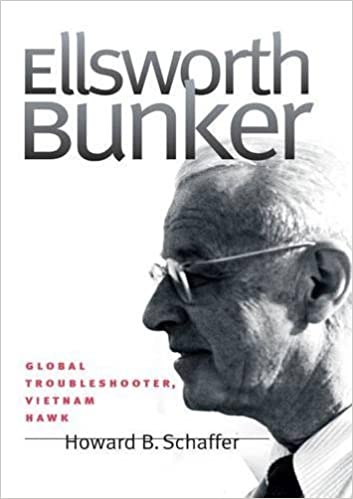
Ellsworth Bunker: Global Troubleshooter, Vietnam Hawk
The message focuses on the life and career of Ellsworth Bunker, depicting him as a global troubleshooter and a Vietnam Hawk.
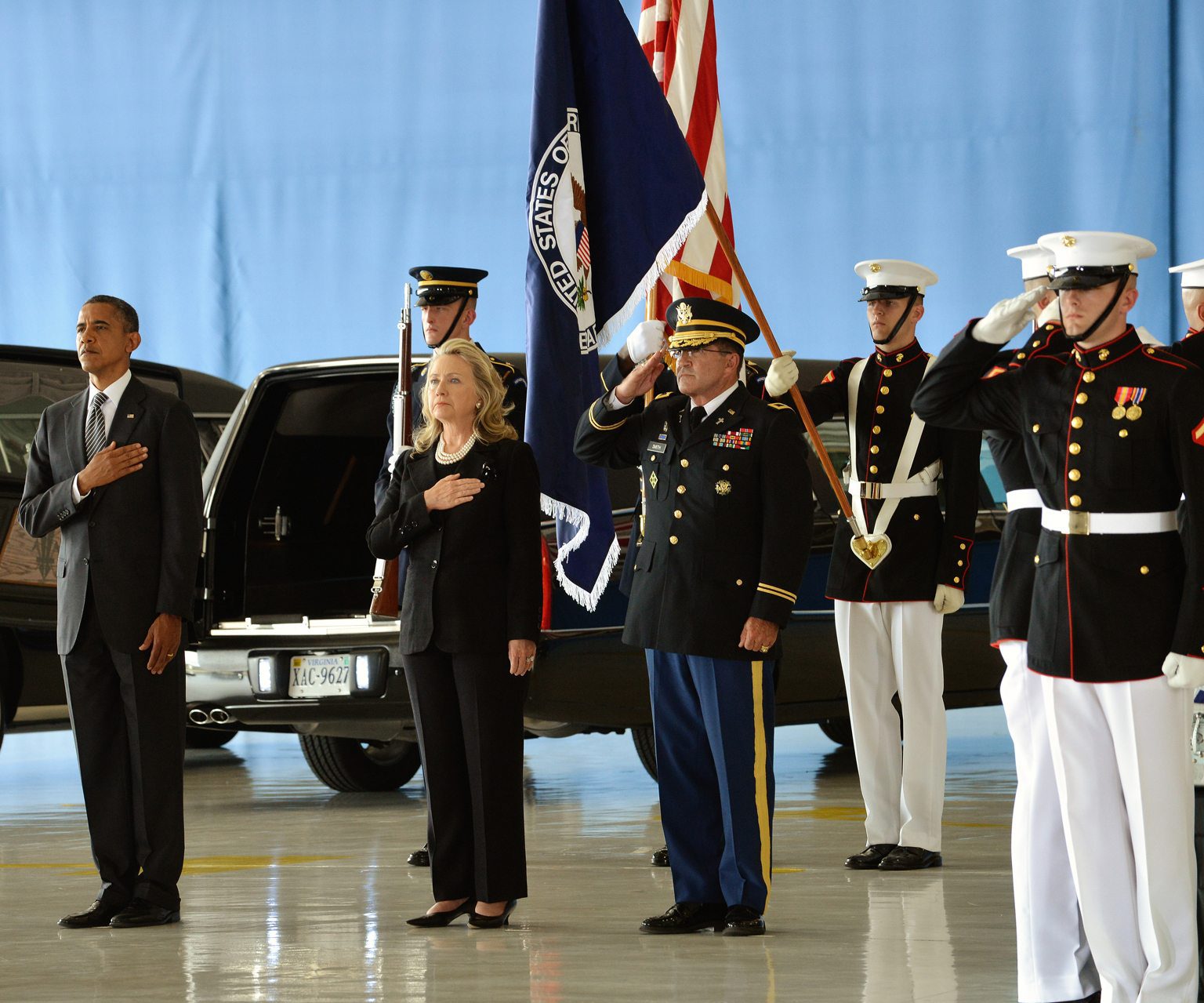
A weak diplomatic hybrid: U.S. Special Mission Benghazi, 2011-12
In the widespread coverage of the brutal murder of US Ambassador to Libya Christopher Stevens and others in the US mission in Benghazi on 11 September 2012, there has been much confusion over the character of the post. It has been repeatedly described in the media as the American ‘consulate’ but the official position, recently stated emphatically by the Report of the Accountability Review Board for Benghazi (ARB) convened by secretary of state Hillary Clinton, is that ‘the U.S. Special Mission in Benghazi was never a consulate and never formally notified [in any character] to the Libyan ...

The United Nations and Israel
This dissertation studies the relationship between the United Nations and Israel. Similar to most relationships, the one under review keeps evolving due to changing internal realities and emerging external factors.
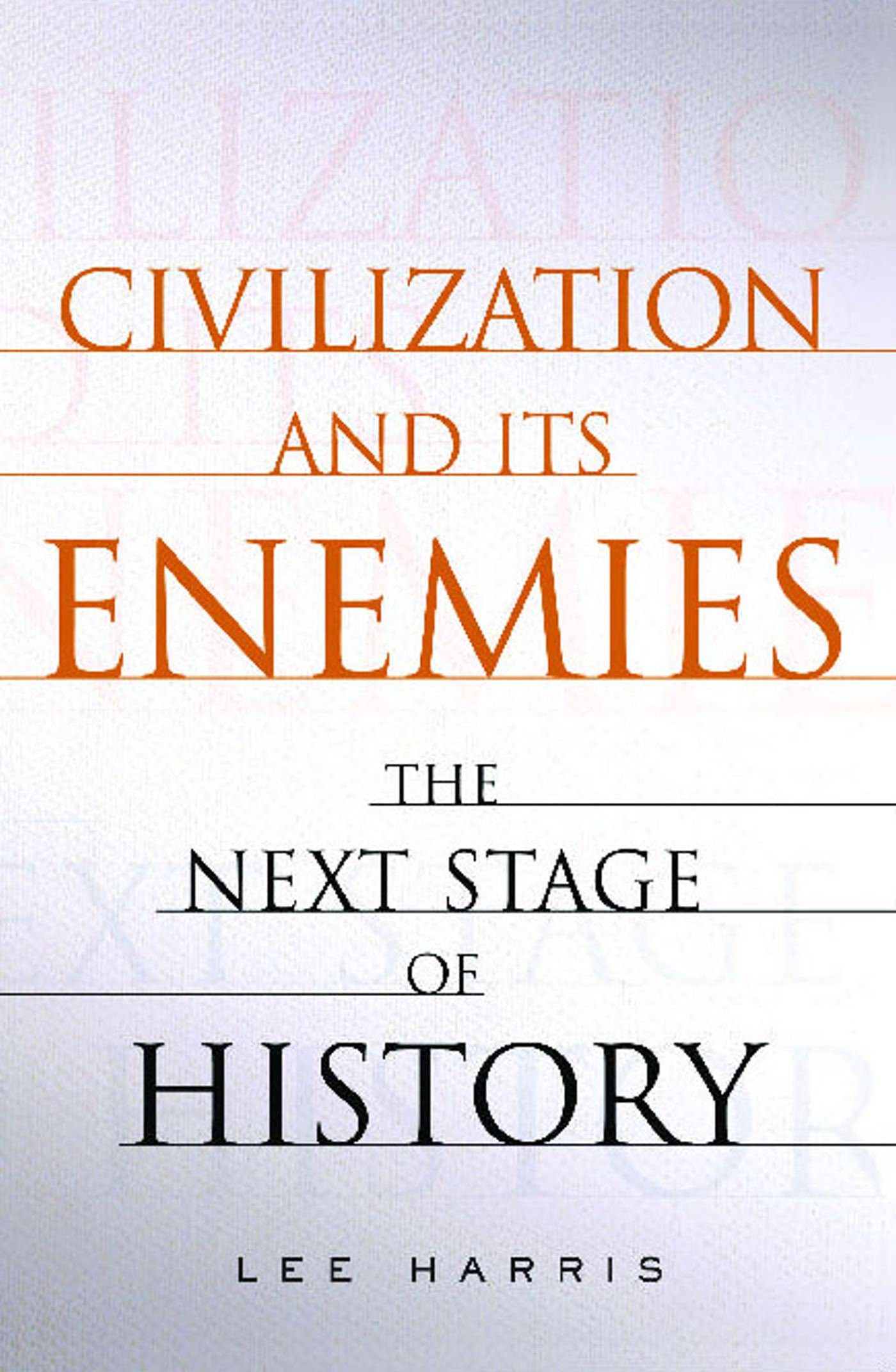
Civilisation and its Enemies: The Next Stage of History
Lee Harris is not an academic – his name would hardly be quoted in obscure learned journals. In the aftermath of 9/11 he has written this book in an attempt to articulate and argue a position that justifies (both retaliatory and precautionary) military intervention while rejecting racism or fundamentalism. A ‘loner’ who shares many ideas with the Straussian school (but without the latter’s undertone of righteous victim), Harris may be giving voice to the worldview underpinning much current U.S. action in international political affairs. He is worth engaging.

On the importance and essence of foreign cultural policy of states
Foreign cultural policy is in itself vital for establishing long lasting and deep relations between countries in international intercourse. But what we should equally bear in mind is that it is important to preserve the variety and the diversity of cultures in our efforts to bring about global cultural communication. Uniform culture is not culture and cannot be communicated.
The British Interests Section in Kampala, 1976-7
The message below provides an overview of the activities and challenges faced by the British Interests Section in Kampala between 1976 and 1977.
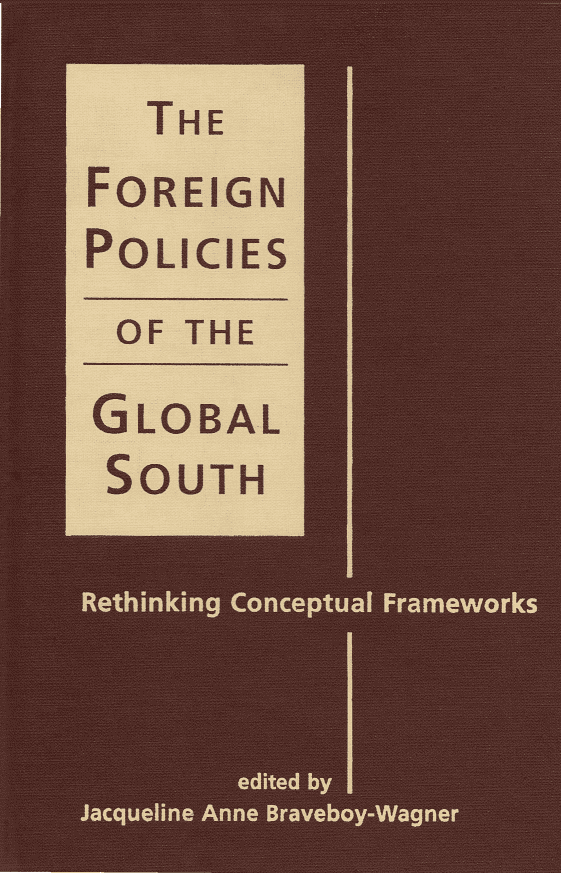
The Foreign Policies of the Global South: Rethinking Conceptual Frameworks
The text provides an analysis of foreign policies in the Global South and suggests reconsidering existing conceptual frameworks.

Finance, Trade and Politics in British Foreign Policy, 1815-1914
The text explores the interplay of finance, trade, and politics in British foreign policy from 1815 to 1914. It discusses how economic factors influenced decision-making and shaped diplomatic relations during this period.

Economic coercion as an instrument of foreign policy: US economic measures against Cuba and the Dominican Republic
The text discusses how the United States has used economic coercion as a foreign policy tool against Cuba and the Dominican Republic.

Global health diplomacy: Advancing foreign policy and global health interests
Attention to global health diplomacy has been rising but the future holds challenges, including a difficult budgetary environment. Going forward, both global health and foreign policy practitioners would benefit from working more closely together to achieve greater mutual understanding and to advance respective mutual goals.
Major country diplomacy with Chinese characteristics
On July 30, Xi Jinping oversaw a meeting of the Politburo to discuss economic reform, ahead of the widely-anticipated discussions at Beidaihe leading up to the release of a new economic reform package at the Third Plenum in October (Xinhua, July 30). The official press provides no further detail about the meeting, but Premier Li Keqiang has described the center’s economic priorities at great length in recent months. Meanwhile, Xi has been busy consolidating power, gaining hold of what appears to be an unusually strong grasp of the party’s central apparatus. It remains unclear, howev...

Small States and the Common Foreign and Security Policy (CFSP) of the EU: A Comparative Analysis
The text discusses the role of small states in the Common Foreign and Security Policy (CFSP) of the European Union, comparing their strategies and challenges.
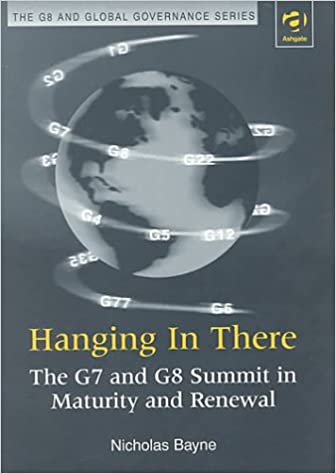
Hanging In There: The G7 and G8 Summit in Maturity and Renewal
The G7 and G8 summits have evolved over time, transitioning from a focus on economic issues to a broader range of global challenges. Despite criticism, they remain relevant due to their ability to adapt and address current issues like climate change and cybersecurity. The summits have provided a platform for dialogue and cooperation among world leaders, underscoring the importance of multilateralism in today's interconnected world.
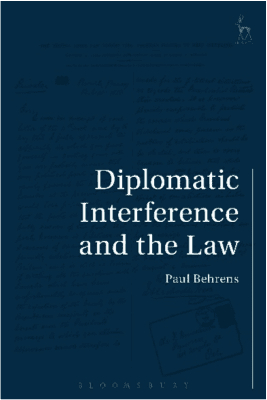
Diplomatic Interference and the Law
Q: ‘Why will there never be a coup d’état in Washington? A: Because there’s no American Embassy there.’ This old joke serves to highlight the belief – entrenched deeply in poor, weak states – that diplomatic missions too often meddle in the ‘internal’ or ‘domestic’ affairs of the countries in which they are located, sometimes with dramatic consequences. It is a view that was held in the years following the Second World War by the former Yugoslavia, then struggling to extricate itself from the Soviet orbit, and prompted it to press successfully for the codification of dipl...

US Public Diplomacy: A Cold War Success Story?
The post-'9/11' revival of interest in US public diplomacy encompasses a wide variety of opinions, all overwhelmingly critical.
U.S. Propaganda in the Middle East – The Early Cold War Version
The text discusses the use of U.S. propaganda in the Middle East during the early Cold War era.
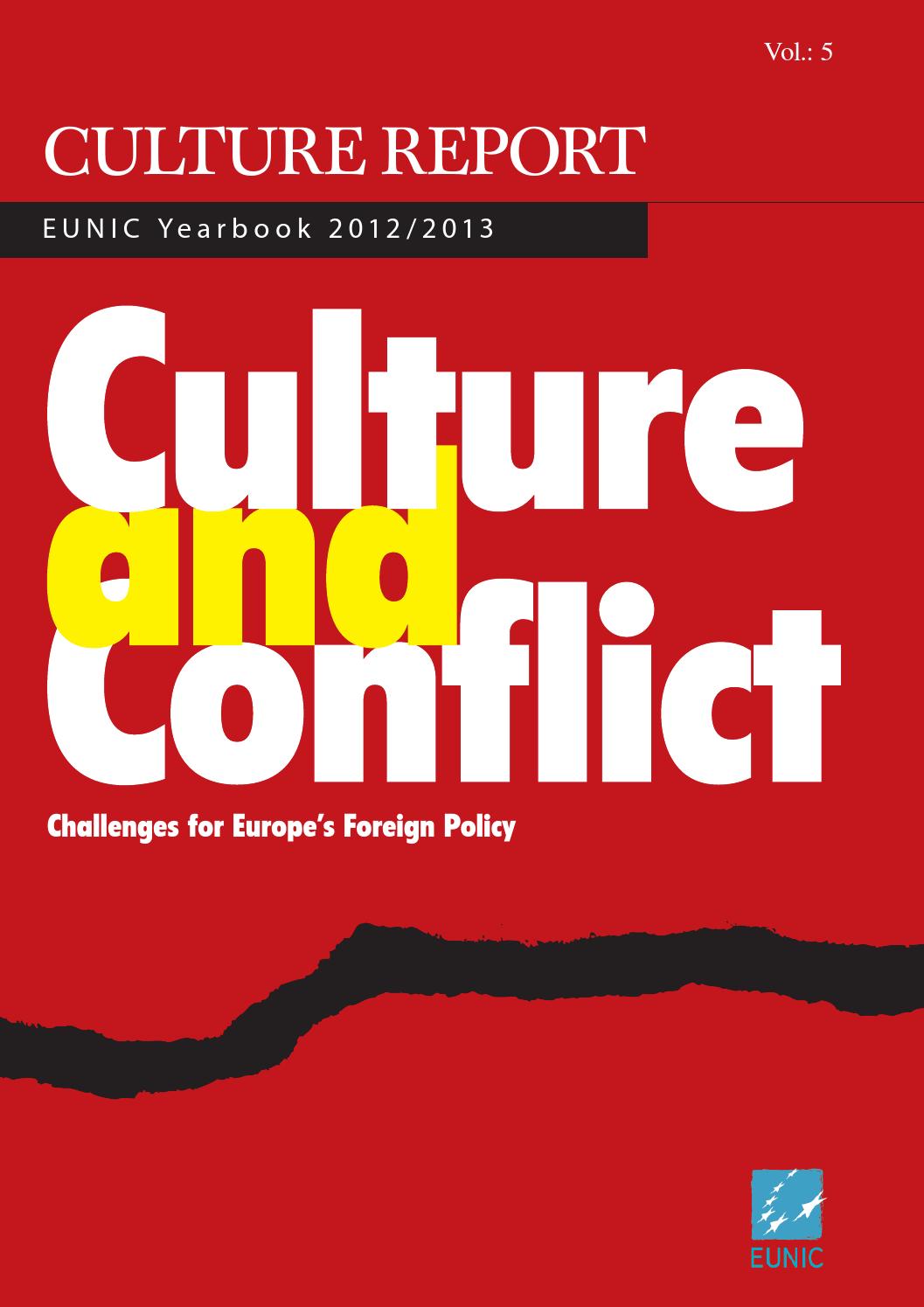
Culture and Conflict: Challenges for Europe’s Foreign Policy
The text discusses the challenges that Europe's foreign policy faces due to cultural differences and conflicts.

Frontline Diplomacy: The U.S. Foreign Affairs Oral History Collection on CD-ROM
The ADST is a private, non-profit organization whose mission is ‘to spread knowledge about the practice and history of modern American diplomacy’. To this end, its Oral History Project, created in 1985 under the direction of former Consul-General Stuart Kennedy, has devoted considerable resources to conducting, recording, and editing interviews with retired members of the US Foreign Service, among others.

True Brits: Inside the Foreign Office
True Brits: Inside the Foreign Office" offers an in-depth look into the workings of the British Foreign Office, shedding light on the complexities of international relations and diplomacy.
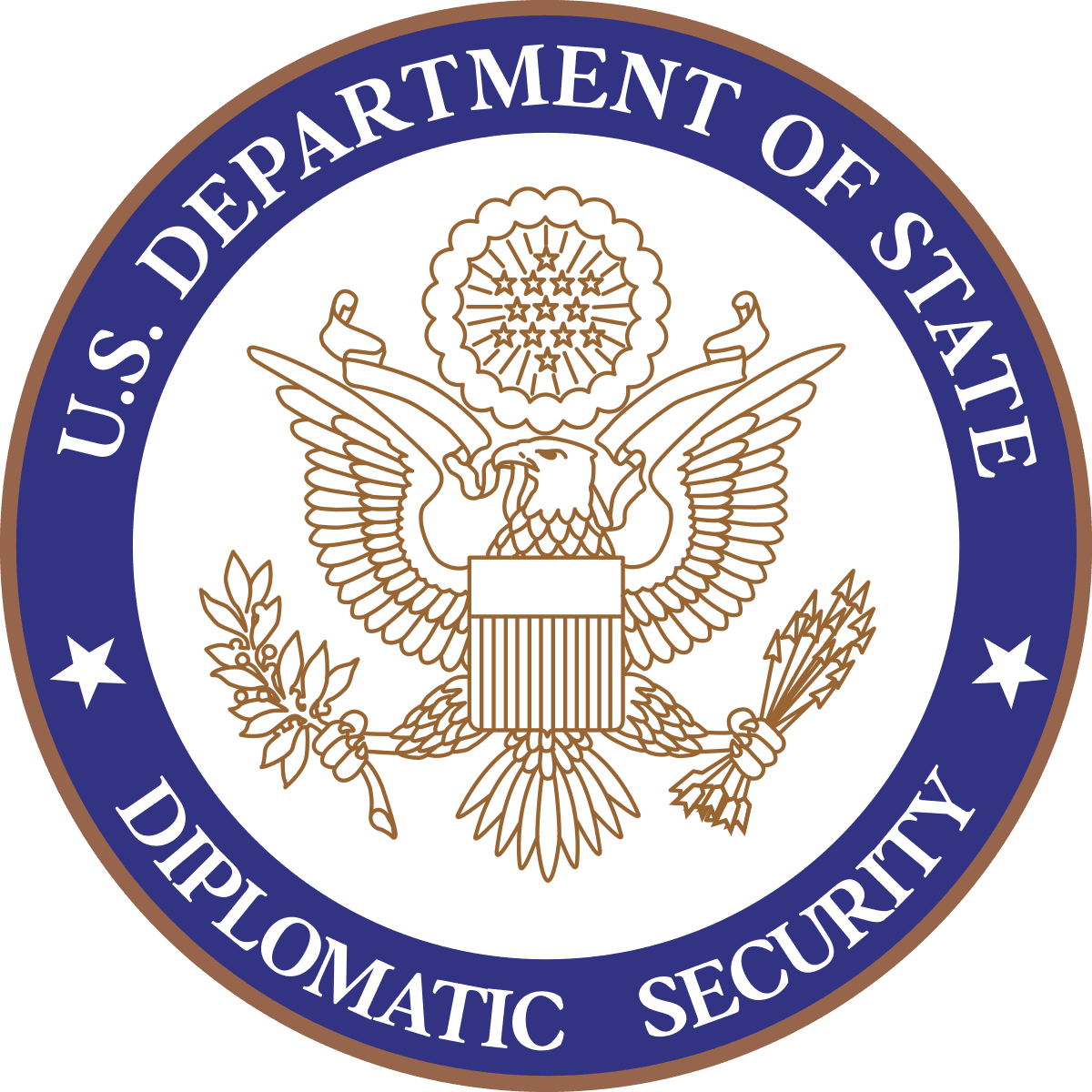
Tested in Times of Transition
The message focuses on navigating challenges during periods of change.
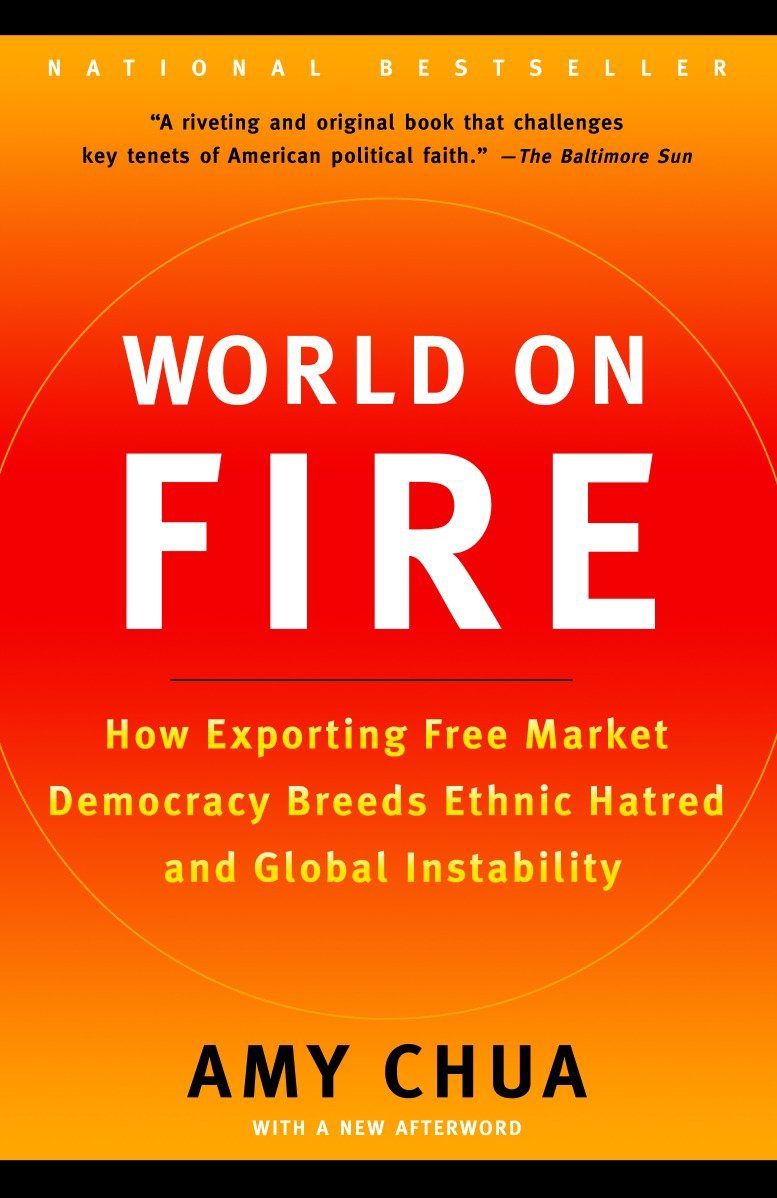
World on Fire: How Exporting Free-Market Democracy Breeds Ethnic Hatred and Global Instability
Markets only function optimally when there is perfect information. Joseph Stiglitz received the Nobel Prize in economics for proving that when there are asymmetries of information markets fail. Information economics, with its better analyses of labour, capital, and product markets, enables the construction of macroeconomic models that provide deeper insights into unemployment, recessions and depressions, and other problems that have marked capitalism since its beginnings.

The Yugoslav diplomatic service under sanctions
Sanctions adversely affect all the structures of the state and society, and render difficult, if not impossible, the normal operation of services, including the Foreign Service.This paper discusses the challenges faced by the Yugoslav diplomatic service when the country was under sanction.

Statecraft and foreign policy: India, 1947–2023
Statecraft and Foreign Policy provides an in-depth understanding of India’s rise as an economic and political power and its role in addressing global challenges, from climate change to international trade, security, health and energy. It focuses on India’s statecraft and foreign policy from its independence in 1947 to current politics and policies in 2023 – 75 years later.

The Role of Religion in Shaping Saudi Arabia’s Foreign Policy Towards Sub Saharan Africa: A Case Study of Uganda
Cultural and geographical proximity between Saudi Arabia and Sub-Sahara African region makes the relations between the two sides an interesting and wanting area of study. It was against this backdrop that this researcher decided to investigate into this important area.

Global health diplomacy: How foreign policy can influence health
Ilona Kickbusch argues that public health experts need to work with diplomats in order to achieve global health goals.
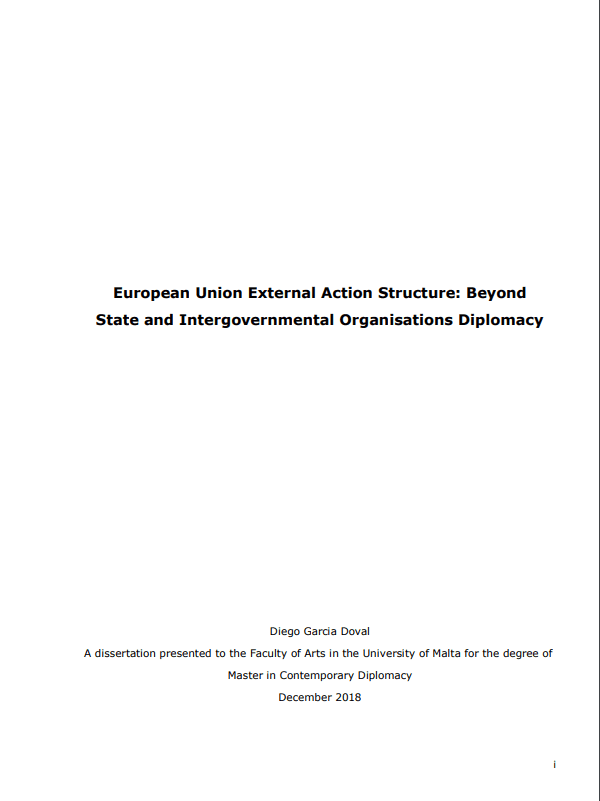
European Union external action structure: Beyond state and intergovernmental organisations diplomacy
This dissertation analyses the organisation of the external action structures of the European Union. As an international actor which is beyond a state, but also different to traditional international organisations, the EU has created a “diplomatic constellation” in which diplomacy from member states is not substituted but complemented by EU external action.
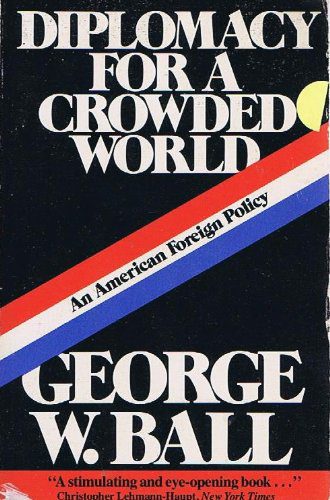
Diplomacy for a Crowded World
The message emphasizes the importance of diplomacy in a world facing increasing population growth and competition for resources. Diplomacy is portrayed as a crucial tool for navigating the complexities of a crowded world, fostering cooperation, and finding peaceful solutions to global challenges.
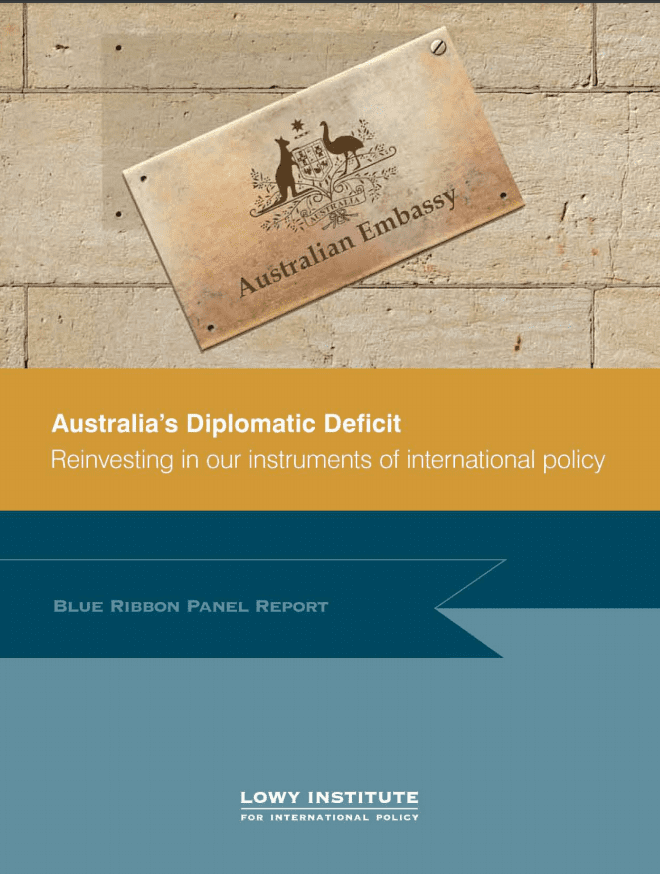
Australia’s Diplomatic Deficit: Reinvesting in Our Instruments of International Policy
The text discusses the importance of Australia re-investing in its instruments of international policy to address its diplomatic deficit.

Cyber-diplomacy: Managing Foreign Policy in the Twenty-first Century
Cyber-diplomacy: Managing Foreign Policy in the Twenty-first Century" discusses the importance of digital diplomacy in modern international relations. It explores how governments can leverage technology to engage with other countries, protect national interests, and navigate cyber threats effectively. This book offers insights into how cyber-diplomacy is reshaping traditional diplomatic practices and the key role it plays in shaping foreign policy in the digital age.

Against All Enemies: Inside America’s War on Terror
All memoirs are incomplete; instant ones even more so; and memoirs about security matters are the worst, in this respect. The book, however, manages to disappoint in an unusual way.

Japanese middle-power diplomacy
In the realm of international relations, Japan engages in middle-power diplomacy, showcasing its influence and capabilities while fostering beneficial relationships on the global stage.
The latest from Diplo and GIP
Tailor your subscription to your interests, from updates on the dynamic world of digital diplomacy to the latest trends in AI.
Subscribe to more Diplo and Geneva Internet Platform newsletters!
Diplo: Effective and inclusive diplomacy
Diplo is a non-profit foundation established by the governments of Malta and Switzerland. Diplo works to increase the role of small and developing states, and to improve global governance and international policy development.


